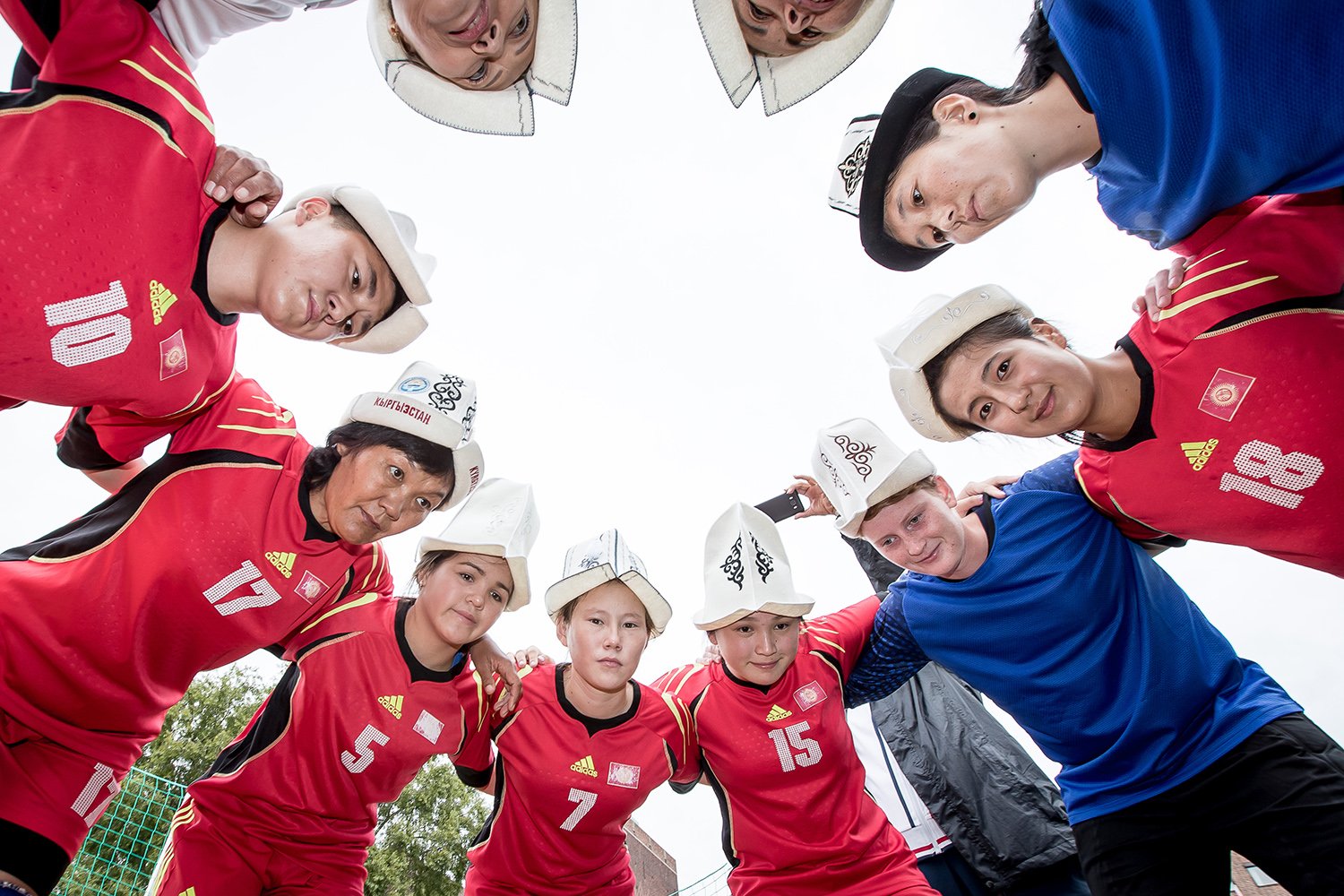
KYRGYZ REPUBLIC
STREET FOOTBALL FEDERATION OF THE KYRGYZ REPUBLIC
Street Football Federation of the Kyrgyz Republic (SFF) work with orphans, vulnerable children, and marginalised adults residing in illegal settlements.
Many of their adult participants are migrants from rural areas who seek better life in Bishkek. SFF run three core activities: annual tournaments among orphanages, providing humanitarian help to orphanages, and preparing and selecting the Homeless World Cup national team.
ORGANISATION DETAILS
PARTICIPANTS
Youth from illegal settlements and orphans; women and men who are migrants from rural areas and live in women’s shelters and/or in informal settlements around Bishkek.
LOCATIONS
Bishkek, Osh, and some rural areas.
Country statistics
117 out of 189 in Human Development Index rankings (UNDP, 2022)
Average annual salary per person $1,760 (World Bank, 2023)
2.3 million people live in poverty (WFP, 2022)
Kyrgyz Republic, also known as Kyrgyzstan, is a landlocked country in Central Asia bordering Kazakhstan to the north and China to the south. It has a population of 7.2 million with an uneven distribution of people living in and around the two major cities, Osh and Bishkek.
Over a third of people in the country live in poverty. The country’s economic growth was affected by the global pandemic and has yet to fully recover. The pandemic also affected food prices which have risen by more than 50 per cent since 2020 (WFP, 2022).
In 2019, the Kyrgyz Republic became the first country in the world to resolve all known cases of statelessness. They have also been working with UNHCR to improve conditions for refugees and asylum seekers in the country. In December 2021 the government made a global pledge to give refugees have the same access to healthcare and education as Kyrgyzstani nationals (UNHCR, 2023).
Article 45 of the Kyrgyz Republic constitution includes the right to housing, however there is no existing housing strategy in the country and there are no laws in place to protect people against illegal evictions or in support of social or affordable housing being built. There are also limited protections in place to support care leavers (International Centre Interbilim).
STORIES from the region










